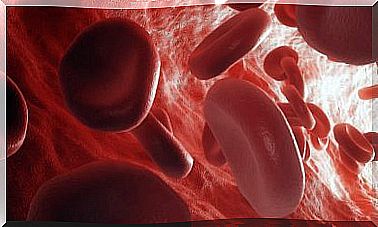Precautions While Using Bisoprolol
Bisoprolol is a drug that belongs to the group of drugs called beta-blockers. It is used to treat high blood pressure and recurrent angina pectoris.
Angina is a disease in which the heart muscles receive less oxygen than necessary. This generally occurs during exercise. The most common symptoms associated with this disease is chest pain.
How should I take bisoprolol?
Bisoprolol should be taken in the morning, before, with, or after breakfast. It should be swallowed whole with liquid and should not be chewed or crushed. Try to take it every day at the same time and for as long as your doctor has indicated.
It is also advisable to avoid drinking alcohol, as it can increase the blood pressure lowering effect of bisoprolol.
If you have any of the following conditions, you cannot take bisoprolol :
- Acute heart failure.
- Heart block or slow heartbeat.
- Very poor circulation or Raynaud’s syndrome.
- Extremely low blood pressure.
- Severe asthma or severe breathing difficulties.
- Metabolic acidosis.
Precautions about bisoprolol
Before starting treatment with bisoprolol, your doctor should know if you suffer from conditions such as asthma, diabetes and hyperthyroidism. Also, you should know if you have suffered from allergies and psoriasis with severe skin rashes.
In case you are going to be admitted for surgery, you must inform the anesthetist or medical personnel that you are taking bisoprolol.
What if you are taking other medications?
As we have said, you must be careful to inform your doctor or pharmacist that you are taking bisoprolol. It is important to know this to combine with any other medicine. Especially with drugs used to treat angina or high blood pressure. Among them are:
- Verapamil.
- Diltiazem.
- Clonidine.
- Methyldopa.
- Guanfacin.
- Moxonidine.
- Rilmenidine.
When you are taking bisoprolol, you must also take precautions with the medications used in the treatment of the following diseases:
- Depression or mental illness : in these cases, drugs from the group of monoamine oxidase inhibitors, tricyclic antidepressants or phenothiazines are used.
- Irregular heartbeat : Amiodarone, disopyramide, or quinidine are used.
- High blood pressure and angina pectoris : Calcium channel blocker drugs or beta blockers are used in these conditions. This includes beta-blockers in eye drops.
- Alzheimer’s : medicines to treat this disease, such as anticholinesterase drugs.
- Asthma : especially with the corticosteroids that are used in its treatment.
- Diabetes in whose treatment insulin or other antidiabetic drugs are used.
- Heart failure in which digitalis glycosides are used.
You also have to take precautions with anti-inflammatory painkillers (NSAIDs). These are medications used to relieve pain, tenderness, inflammation, and stiffness caused by gout, arthritis, and other inflammatory diseases.
Precautions also include migraine medications such as ergotamine, sympathomimetic agents, barbiturates used in sleep disorders, and some chemoprotective medications.
What if I am pregnant or breastfeeding?
If you are pregnant or breast-feeding, consult your doctor or pharmacist before taking bisoprolol. Also if you think you might be or are planning to become pregnant.
The use of bisprolol is not recommended during breastfeeding. It is also not advisable in pregnancy, unless it is clearly necessary and the doctor recommends it.
Bisprolol and conduction

Bisoprolol can cause side effects that can affect a person’s ability to drive. This happens especially during the first weeks of treatment. Side effects include visual disturbances, drowsiness, or dizziness. If you suffer from any of these adverse effects, it is recommended to refrain from driving.
Common adverse effects
Among the common side effects that bisprolol can cause are:
- Feeling cold or numbness in the limbs and worsening cramps.
- Raynaud’s disease : is a disorder where the blood supply to the tips of the fingers and toes decreases.
- Hypotension
- Tiredness, dizziness and headache, especially at the beginning of treatment, which often disappear within 1-2 weeks.
- Nausea, vomiting, diarrhea, abdominal pain, constipation.
Conclution
For a rational and proper use of bisprolol, you should always go to a health specialist. In this way, the treatment will be adequately supervised and the health problem controlled correctly.








